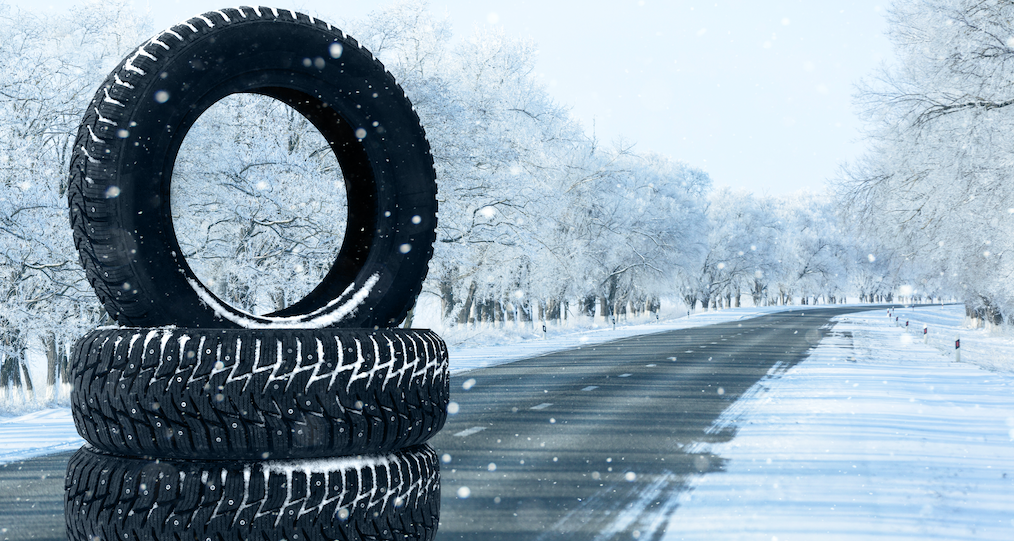
You wouldn’t go out in the cold without your winter jacket. Nor should you take your car onto icy or snowy roads without winter tires. Below is an overview of how winter tires work and why you should seriously consider having them installed.
How Winter Tires Work
Winter tires hold two distinct advantages over standard tires: different materials and different treads.
Materials
Tires are made largely of natural and synthetic rubber, but are supplemented with ingredients like oil, silica, and carbon black. Different tires use different blends of materials, and those particular blends affect the tire’s behavior in cold and warm temperatures.
Generally speaking, the rubber on a tire will become more hard and brittle when it’s cold and very soft when it’s warm. And each type of seasonal change brings its own risks to tires. Hard tires become more slippery and fail to grip the road as efficiently, while soft tires run the risk of a blowout.
Summer tires are built to better withstand the heat of summer, but become even firmer and more slippery in the cold. All-season tires are a nice compromise for year-round use in milder climates, but are no match for the extreme winter temperatures found in the north.
Winter tires, meanwhile, are blended with a mix of ingredients that limit how much the rubber hardens during cold temperatures and allows the rubber to remain flexible for optimal traction — even in extreme cold.
Treads
The tread patterns on a tire are designed to grip the road and channel away water. Standard all-season tires are equipped to handle your everyday rain shower, but do not contain treads that are adequate for significant snow and ice.
Winter tires typically include small blocks in the tread pattern that produce sharp edges to help the tire “bite” into snow and ice. The deeper grooves more efficiently channel away water and slush to keep the rubber in direct contact with the road and prevent hydroplaning. Winter tires also feature tiny slits or “sipes,” which open when they touch the ground to provide increased grip.
Why You Should Have Winter Tires Installed in Madison, WI
Put simply, a winter tire can mean the difference between getting into a dicey situation or not. One in every five accidents are attributed to weather conditions, and a winter tire provides the better stopping, handling, turning, and accelerating necessary to navigate dangerous winter roads.
The expert service team at Zimbrick Automotive in Madison, Wisconsin, can install a set of winter tires for you and have you on your way in no time. Be sure to check out any ongoing service specials at your nearest Zimbrick location, and start your winter off on the right foot. Or rather, the right tire.



